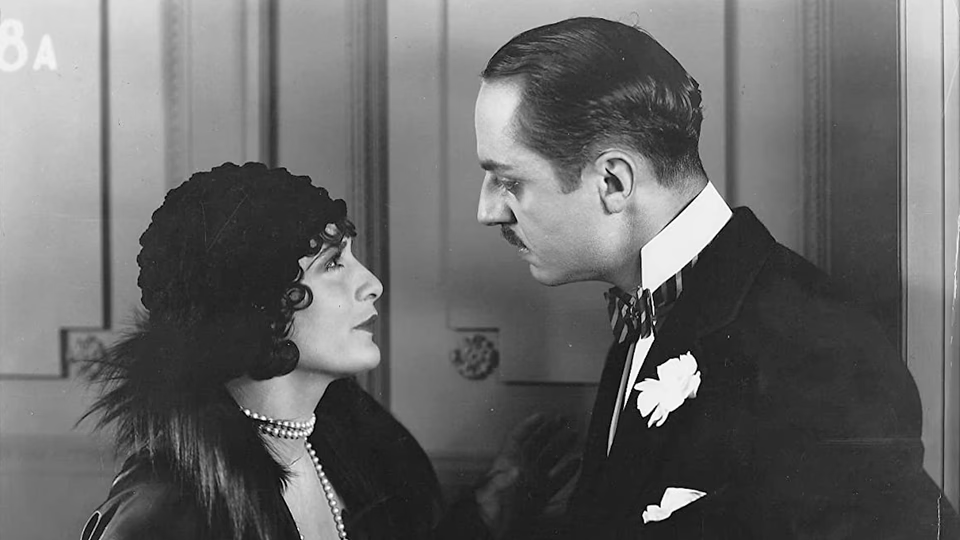Interference

William Powell plays a womanizer believed killed in the first World War. When he’s discovered living under an assumed name, a former flame, played by top-billed Evelyn Brent, seizes the opportunity to blackmail her former rival, Powell’s ex-wife, now married to an upstanding doctor played by Clive Brook.
Powell’s first talkie was also Paramount’s first all-talking motion picture. First filmed as a silent, Paramount then reshot it with dialogue, then released both versions to theaters.
The novelty and constraints of the sound production affected the actors. Said Brent of the production:
They had microphones all over the place … everybody would have one. And if you got up to walk toward the other people, you had to remember to stop talking before you left this mike and pick it up when you reached another one. Otherwise, your voice would go out and in.1
The soundproof camera enclosures also proved intimidating. Said Brook:
two ominous, tank-like objects were focused on me. Faces peered at me from the darkness inside these caverns. I caught the reflection of camera-lenses in the plate-glass windows that form the front walls of the tanks. Cameras were grinding, but the sound of their mechanisms had been silenced.2
Said enclosures prevented any camera movement. Thanks to the microphone-induced hesitancy, the actors feel as stiff as the camera work. This inherit stiffness prevents any emotional stakes.
It’s been written that Powell “planned to go into hiding” after hearing his voice test,3 but he’d later realize how critical sound was to his career. When asked if talkies had “hurried” his career, he replied:
Don’t be foolish. They caused it. But for talkies I would probably be a first class so-and-so in every picture. I was practically doomed by my face to play a screen menace.4
Indeed, Powell’s relaxed demeanor (compared to his costars), combined with his urbane diction and phrasing, affords his performance a quiet dignity that provides the film’s only resonance. Interference isn’t a good picture, but an important one, announcing Powell as a leading man candidate for the sound era.
Notes
-
John Kobal, People Will Talk (United Kingdom: Knopf, 1985), 116. ↩︎
-
Alexander Walker, The Shattered Silents: How the Talkies Came to Stay (New York: W. Morrow, 1979), 106. ↩︎
-
Adolph Zukor with Dale Kramer, The Public is Never Wrong (New York: G. P. Putnam’s Sons, 1953), 253. ↩︎
-
Los Angeles Times, March 6, 1984. ↩︎